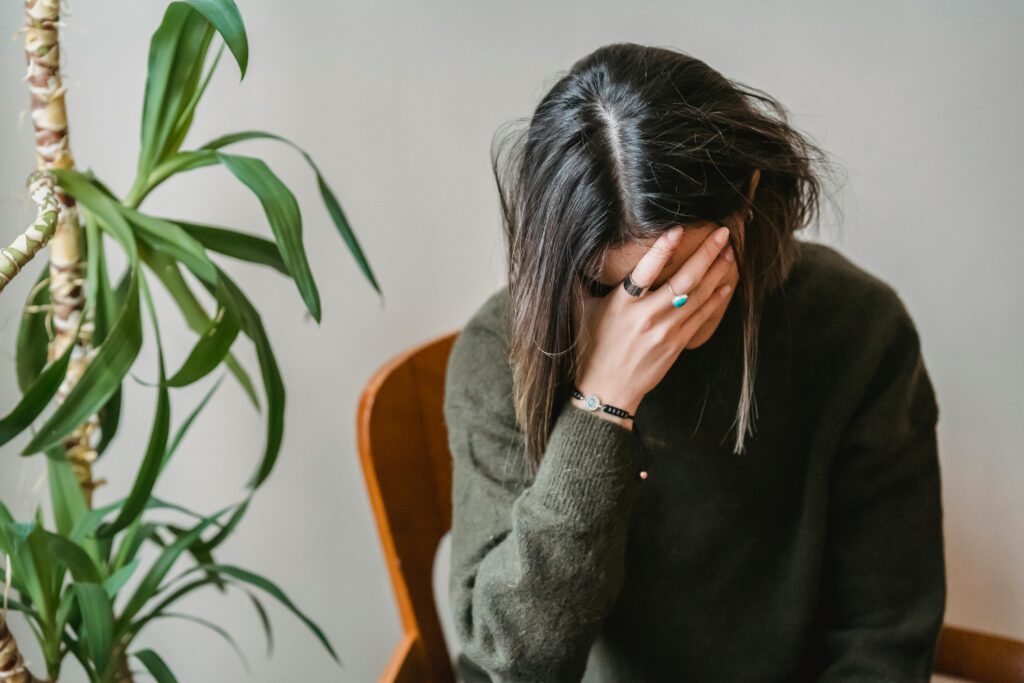
“[Anxiety is] a horrendous negative energy that clings to you like your own skin; [it’s] a feeling like catastrophe is immediate and inevitable,” says Matt*, a 31-year-old registered behavior technician from South Jersey. Matt is just one of the estimated 40 million Americans who is learning how to cope with anxiety disorder – the most common mental health issue that afflicts US adults. [ADAA.org]
How does anxiety manifest? For some, it shows up as panic attacks, racing thoughts, perspiration, or cold sweats. Anxiety can keep you awake at night, keep you from feeling hungry, or exhibit itself in the form of compulsive behaviors. You may not even realize that your symptoms are a form of anxiety!
A variety of triggers can bring on anxiety. This includes our finances, our jobs, or grades at school. For some, perfectionism is the root of anxiety. “Anxiety has been my companion for as long as I remember,” shares Emily*, also of South Jersey. “It makes me feel like I’ll never do enough or achieve enough. [It feels] like I could always do better and I shouldn’t rest, relax, or enjoy myself until I do.”
If you’ve found yourself in a wrestling match with anxiety, you are far from alone! To help you in your battle, I interviewed Matt and Emily on their best tried-and-true tips for dealing with anxiety. These tips have been put into practice and actually work for real people. A therapist also reviewed these tips and shared her professional input.
When dealing with social anxiety, Matt has found that giving himself a reality check is very important. “My brain tells me people are unstable and can be totally different from day to day as to whether they [care] about you, but scrolling through texts from the last couple of days can remind me that most people are fairly consistent.”
According to the therapist, disproving your anxiety is important because often, we find that our fears are not based in reality. With society anxiety in particular, you may leave a situation with a fear that someone thought you were strange or weird, but the reality is that they texted you later to tell you how happy they were to see you. Reminding yourself of what actually happened helps you realize that your fear isn’t really true.
With “Yes, and…” statements, you affirm your anxiety but also acknowledge that something may not be as scary as you think. “You can say, ‘Yes, I feel anxious about going [to the party], and I’m very excited to see my friends,” the therapist shares.
Emily uses this affirming statement for dealing with her perfectionism: “Yes, I am doing the best that I can, and there is still room for improvement.”
“This is huge for anxiety!” shares the therapist. Exercise produces endorphins (which are great for your mood), reduces stress, and levels out your adrenaline. A tip for staving off a panic attack? It doesn’t work for everyone, but for some people, sprinting can help stop the panic. It tricks your brain into thinking that the elevated heart rate is actually coming from exercise.
Exercise also helps you to sleep at night, and getting enough sleep is big part of preventing anxiety. Additionally, try to get that exercise outside if you can. Getting some exposure to the sun is great for your health and your mood.
Mediation and journaling are a great way to clear your mind and process your emotions. “I’m a huge fan of meditation,” shares the therapist. “Meditation is purely taking a break, being present, and breathing. Breathing is huge for anxiety. A lot of times people hold their breath when they are anxious. The lack of oxygen to the brain can make anxiety worse.”
Another important component of meditation is being in the moment (also known as practicing mindfulness). Often our anxiety comes from thinking of things in the past or the future, and remaining present has been proven through research to help us be less anxious.
Matt loves to express himself creatively, and he shares that doing so has helped him cope with anxiety. “We can all create,” he shares. “Poetry, painting, music, collages, scrapbooks, craft, anything. Create about what bothers you. Create about anxiety. Create about recovery. Create about the future. Just get it out!”
“Creativity is a health coping mechanism and a good distraction,” shares the therapist. Creating helps you to focus your thoughts elsewhere, so you stop dwelling on your anxious thoughts and focus on something productive. For more on this, check out my post on how interior design helped me cope with mental illness.
Therapy has been a crucial part of coping with anxiety for both of my interviewees. It may seem expensive or out of reach for some people, but Emily insists that it isn’t. “Therapy is more available than people think it is!” she shares. “I was making the least money of my life, and I was able to find a therapist on a very low income. Many offices have interns who are about to graduate, or they offer therapy on a sliding scale that is income-based.”
She also advises not to wait until things get bad before you start therapy. If you suffer from anxiety, start looking for a therapist when things are good. “It’s much harder to find a good one when you’re at your lowest.”
For many people, medication can help with anxiety. “When I started taking Zoloft, it took the edge off my anxiety – that’s how I realized I even had anxiety to begin with,” shares Emily.
“My view of medication is that it’s a tool,” says the therapist. “It should go hand and hand with therapy, because there is a reason that the anxiety is manifesting, and we should be talking about that. Medication is brilliant at balancing out your brain chemistry so that you can start working on things you need to work on.”
If you’re struggling with anxiety, there are resources available to help you. A great place to start is the Christian Counseling & Educational Foundation website, where there are some great book recommendations for learning how to cope with anxiety.
https://adaa.org/about-adaa/press-room/facts-statistics
*Names have been changed

